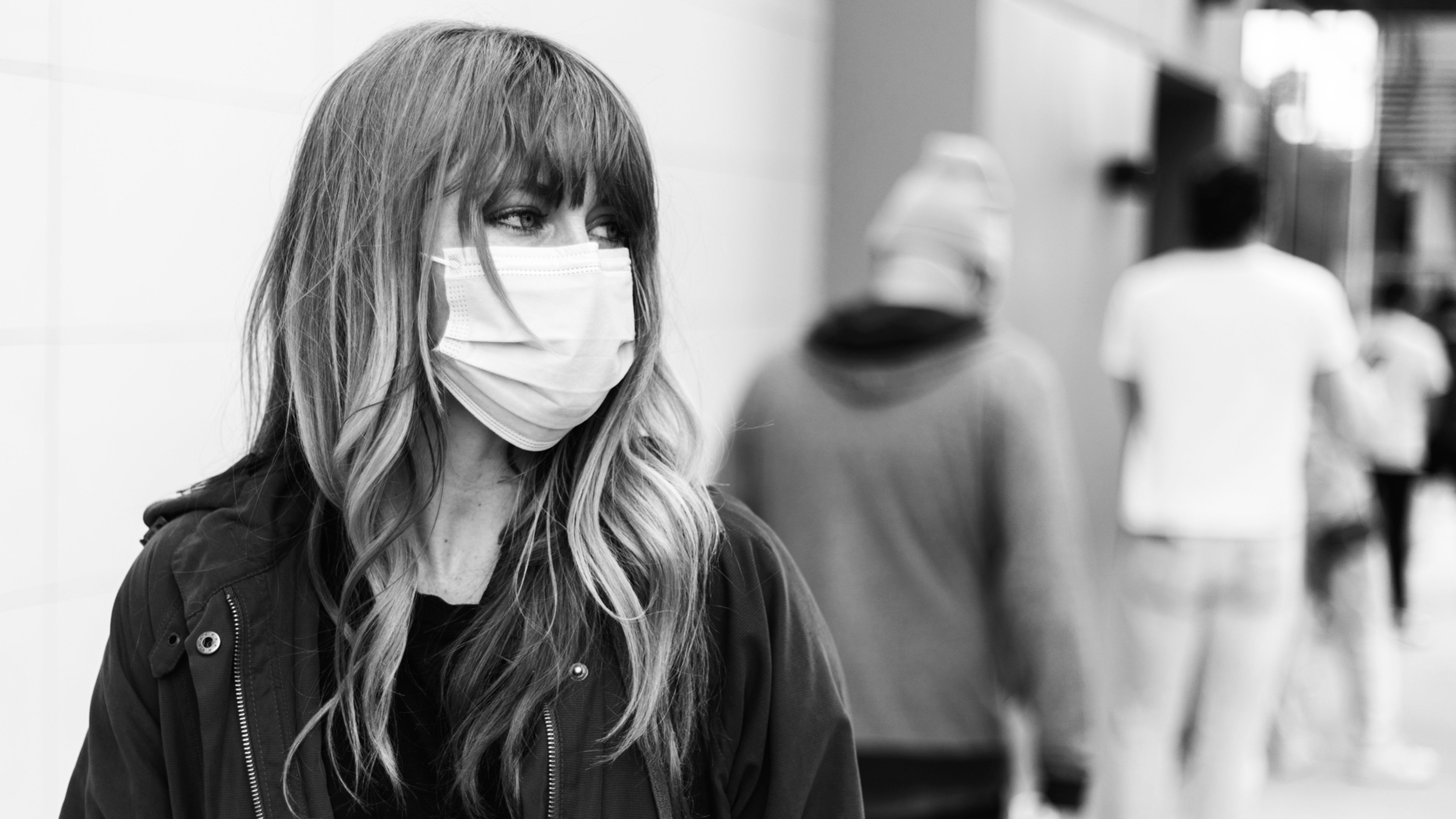It’s. Just. Too. Much.
A quarter of a year into the COVID-19 pandemic and some people simply have had enough. What they’re experiencing—a sense of helplessness, an ongoing dread, a desire to simply give up—is not uncommon. Mental health experts call it crisis fatigue, quarantine fatigue, or caution fatigue.
The fear of contracting the disease, coupled with an it’s-all-going-to-hell-anyway attitude caused by COVID-19, is now accompanied by everything else going on, including financial uncertainty, unemployment, racial injustice, quarantines, and increased childcare responsibilities.
“There’s a feeling of resignation that sometimes results from having crisis after crisis after stressor to manage,” says Arianna Galligher, associate director of the STAR Trauma Recovery Center at The Ohio State University Wexner Medical Center. “Sometimes, it can feel like it’s all too much. The risk is someone might adopt a ‘why bother’ sort of attitude and get into an existential funk about it.”
Michiale Schneider, North Fort Myers, FloridaI can’t control everything. I can only do what I can do”
Now as states begin to reopen, Americans are being asked to stay vigilant about their COVID-prevention behaviors, such as wearing masks and practicing social distancing. While some places control those with local laws, there’s still plenty of room to let things slide. Plus, people are free to do whatever they want in their own homes. Will they be as careful about washing their hands when they come home? Wearing disposable gloves? Letting packages sit outside for a couple of days? Wiping off groceries? Refraining from inviting old or immunocompromised friends and relatives over? Cleaning off items like cellphones that have touched potentially contaminated surfaces outside?
“There’s only so much you can cope with all at once,” Galligher says. “When you’re facing times like these, where multiple things are happening in the world that are difficult to manage, that’s where people become overwhelmed. They start to feel whatever they’re doing isn’t going to matter anyway, because it’s just too much to deal with.”
Personal breaking point
All humans have a saturation point at which they can absorb no more stress or adversity; that point is different for every person, she explained. Individuals who’ve never had to deal with multiple crises at the same time may struggle initially. People with a history of facing life challenges may be more equipped to tackle what’s happening currently—or they could be overwhelmed with this additional hardship.
Michiale Schneider, an educational trainer in North Fort Myers, Florida, says she’s caught herself slacking off on some of her COVID-19 precautions. She’s stopped wiping down her shopping bags and her rescue mutt, Ziva, after they come home from walks. Though she wears a mask when grocery shopping for herself and her elderly neighbors, she no longer cleans the shopping cart with disinfectant wipes.
“I am more relaxed,” Schneider says. “I don’t do that anymore. I feel I’m just done with that.”
A big online shopper, she doesn’t wipe off the boxes delivered to her home anymore—nor does she leave them outside instead. Schneider is almost through her stash of hand sanitizer and has no plan for what to do when it runs out.
“I just feel if I get it, I have to deal with it, if and when that happens. I’m doing what I can to prevent it,” she said. “I can’t control everything. I can only do what I can do. It’s frustrating because of all the unknowns and there’s no vaccine . . . I just toss my hands up and say, ‘I’m doing everything I can that I know about.’ You don’t know what you don’t know. That’s the piece you have put into perspective.”
When humans endure prolonged periods of stress of any kind, they go through phases, according to Dr. Michael Kelley, chief medical officer of behavioral health at St. Mary’s Health System in Lewiston, Maine. First, fear. Next, rallying
“Then, you get into this plateau of exhaustion, the ‘Is it ever going to end?’ phase, and that’s really where it’s at. There’s hopelessness. ‘I don’t see an end in sight,'” he explained. “This is also the phase where people say, ‘I’m going to stop fighting. I’m not going to wear a mask or social distance.’ It might lead to a second wave of COVID-19. People will give up doing what they need to do to take care of themselves and others.”
To combat crisis fatigue, Kelley has three tips:
- Live life. In times of crisis, people tend to put their lives on hold and say, “I’ll wait until this is over.” Obviously, you should follow all guidelines from local health officials, but don’t press the pause button on your entire life.
- Create a sense of normalcy. Spending so much time at home has made people’s lives lose structure. Get that sense of routine back by designing a personal schedule to follow. People thrive in knowing what to expect and when.
- Avoid the negative. Don’t deal with your feelings through alcohol, drugs, and overeating. Give yourself a sense of purpose by remembering why you’re wearing masks and social distancing: to protect the elderly and the vulnerable.
Recognize your brand’s excellence by applying to this year’s Brands That Matter Awards before the early-rate deadline, May 3.
